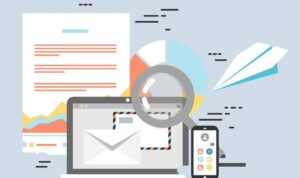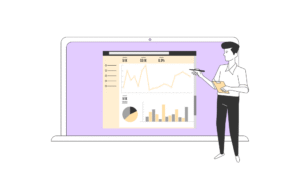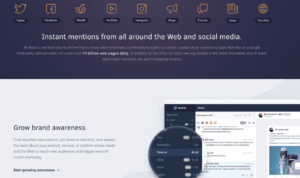How to Use AI Powered Marketing Tools Effectively is an essential guide for marketers eager to leverage technology to enhance their campaigns. In today’s competitive landscape, understanding the diverse range of AI-powered marketing tools can significantly boost your marketing strategies. From automating mundane tasks to gaining insightful analytics, these tools offer a myriad of advantages that can elevate your marketing efforts to new heights.
By exploring the functionalities and benefits of these tools, as well as the factors to consider when selecting the right ones, this guide aims to equip you with the knowledge needed to implement and measure the success of AI in your marketing strategies. Whether you are a novice or a seasoned marketer, the insights provided will help you navigate the evolving world of AI marketing tools.
Understanding AI-Powered Marketing Tools
In today’s fast-paced digital landscape, AI-powered marketing tools have become essential for businesses aiming to enhance their marketing strategies. These tools leverage artificial intelligence to automate processes, analyze data, and personalize customer interactions, providing companies with a competitive edge. Understanding the various types of AI-powered marketing tools available in the market and their functionalities is crucial for marketers looking to maximize their effectiveness.AI plays a vital role in transforming marketing strategies by enabling data-driven decisions and fostering personalized customer experiences.
Through advanced algorithms and machine learning, these tools analyze consumer behavior, predict trends, and optimize marketing campaigns. This integration of AI into marketing not only streamlines operations but also enhances customer engagement, leading to improved conversion rates and customer loyalty.
Types of AI-Powered Marketing Tools
AI-powered marketing tools encompass a wide array of solutions designed to facilitate various aspects of marketing. Recognizing the key categories of these tools is essential for businesses looking to integrate AI into their marketing strategy.
- Predictive Analytics Tools: These tools analyze historical data to forecast future consumer behavior and trends. By leveraging predictive analytics, marketers can make informed decisions about campaign targeting and resource allocation.
- Chatbots and Virtual Assistants: AI-driven chatbots enhance customer service by providing instant responses to inquiries, guiding users through purchase processes, and offering personalized recommendations based on user data.
- Content Creation Tools: AI tools that assist in generating content, such as blog posts, social media updates, and product descriptions, can help streamline content marketing efforts while maintaining high quality and relevance.
- Email Marketing Automation: AI enhances email marketing campaigns by segmenting audiences, personalizing messaging, and optimizing send times based on user behavior.
- Social Media Analytics: These tools monitor social media channels to analyze engagement, sentiment, and trends, enabling marketers to adjust their strategies in real-time.
The role of AI in enhancing marketing strategies cannot be overstated. By automating repetitive tasks, marketers can focus on more strategic initiatives and creative problem-solving. The ability to analyze large datasets quickly and accurately allows marketers to identify opportunities and gaps in their strategies, leading to more effective campaigns.
Advantages of Utilizing AI Tools in Marketing Campaigns
Implementing AI tools in marketing campaigns offers numerous advantages that can significantly impact a brand’s success.
- Increased Efficiency: Automation of mundane tasks frees up time for marketers to focus on strategic initiatives, enhancing productivity.
- Enhanced Personalization: AI tools allow for the segmentation of audiences and the delivery of tailored content, leading to improved customer engagement.
- Data-Driven Decision Making: AI provides actionable insights derived from data analysis, helping marketers craft strategies based on solid evidence rather than assumptions.
- Cost-Effectiveness: By optimizing marketing spend and targeting, AI tools can lead to better ROI on marketing campaigns.
- Improved Customer Experience: Through personalized interactions and timely responses, AI enhances the overall customer journey, fostering loyalty and satisfaction.
“AI-powered marketing tools are not just about efficiency; they are about crafting experiences that resonate with customers at every touchpoint.”
The effectiveness of AI in marketing campaigns is evident in various real-life applications, such as Netflix’s recommendation system, which uses AI to analyze viewer preferences and suggest content that aligns with their tastes. This personalized approach has significantly contributed to subscriber retention and engagement. As marketers continue to adopt AI technologies, the possibilities for innovation and improvement in customer interactions remain vast.
Selecting the Right AI Marketing Tool

Choosing the right AI marketing tool is essential for effectively leveraging artificial intelligence in your marketing strategies. With numerous options available, it can be overwhelming to sift through them all. Understanding the key factors to consider can simplify this process and help you make an informed decision that aligns with your business goals.When selecting an AI marketing tool, various factors come into play that can influence the efficacy and suitability of the tool for your specific needs.
Key aspects include your marketing objectives, budget constraints, and the tool’s compatibility with your existing systems.
Factors to Consider When Choosing an AI Marketing Tool
Identifying the right AI marketing tool involves a comprehensive evaluation of several critical factors. Below is a list of considerations to guide your selection process:
- Ease of Use: The interface should be user-friendly, enabling marketers to navigate without extensive training.
- Integration Capabilities: Ensure the tool can seamlessly integrate with your current tech stack and platforms.
- Scalability: Look for tools that can grow with your business, accommodating increased data and user demands.
- Support and Resources: Evaluate the availability of customer support and educational materials to assist with tool usage.
- Pricing Structure: Consider the pricing plans and whether they fit within your marketing budget.
- Customization Options: The tool should provide flexibility to tailor features according to your specific marketing strategies.
- Analytics and Reporting: Robust analytic capabilities are crucial for measuring the effectiveness of your campaigns.
Comparison of Popular AI Marketing Tools
To make an informed decision, it’s beneficial to compare features and functionalities of leading AI marketing tools. Below is a comparison of a few notable options:
| Tool Name | Key Features | Best For |
|---|---|---|
| HubSpot | CRM integration, email marketing automation, detailed analytics | Small to medium-sized businesses looking for comprehensive marketing solutions |
| Marketo | Advanced automation, lead scoring, multi-channel marketing | Enterprises needing robust automation and lead management |
| AdRoll | Retargeting, AI-driven ad placements, cross-platform capabilities | Businesses focused on retargeting and online advertising |
| Mailchimp | Email marketing, audience segmentation, performance tracking | Small businesses needing effective email marketing solutions |
Checklist for Evaluating AI Marketing Software
Creating a checklist can streamline the evaluation process when considering potential AI marketing software. Below are essential criteria to include:
- Define your marketing goals and objectives clearly.
- Assess the tool’s user interface for ease of navigation.
- Verify integration capabilities with existing systems.
- Check for customer support availability and quality.
- Review pricing models and ensure they fit budget constraints.
- Analyze customization features tailored for your needs.
- Evaluate the depth of analytics and reporting functionalities.
“The right AI marketing tool can significantly enhance your marketing efforts by providing insights and efficiencies that traditional methods may overlook.”
Implementing AI Tools in Marketing Strategies: How To Use AI Powered Marketing Tools Effectively
Integrating AI tools into your marketing strategies can transform how you engage with your audience, streamline processes, and enhance overall effectiveness. A well-structured approach ensures that these tools are utilized to their fullest potential, aligning them with your marketing goals.Implementing AI tools involves several key steps. It starts with identifying areas within your existing marketing strategy that can benefit from AI enhancements.
Once you have a clear understanding, the integration process can be planned and executed efficiently. Here’s a step-by-step process to guide your implementation:
Step-by-Step Process for Integration
Successful integration of AI tools in marketing requires a systematic approach. The following steps help ensure a smooth transition:
- Assessment of Current Strategy: Evaluate your current marketing strategy to pinpoint areas for improvement. Look for repetitive tasks or data analysis needs that AI can address.
- Define Objectives: Set clear, measurable objectives for what you aim to achieve with AI tools. This could range from improving customer segmentation to enhancing personalized marketing efforts.
- Choose the Right Tools: Based on your objectives, select AI tools that best fit your needs. Consider factors like usability, integration capabilities, and support provided by the tool.
- Integration: Integrate the chosen AI tools into your existing systems. This might involve technical adjustments and collaboration with IT teams to ensure compatibility.
- Testing: Conduct thorough testing to identify any issues before full deployment. Use feedback to make necessary adjustments.
- Training: Provide comprehensive training to your marketing team on how to use these tools effectively. Ensure they understand both the technical aspects and strategic applications.
- Monitoring and Optimization: After implementation, continuously monitor the performance of the AI tools. Analyze metrics regularly and optimize strategies based on insights gained.
Examples of Successful Implementations
Real-life success stories illustrate how AI tools can significantly enhance marketing efforts. For instance, Netflix uses sophisticated recommendation algorithms to analyze user behavior and preferences, resulting in increased viewer engagement and retention. Another example is Starbucks, which utilizes AI to personalize customer experiences through tailored marketing messages and product recommendations, boosting sales significantly. These implementations highlight the tangible benefits of leveraging AI in marketing.
Training Teams for Effective Usage, How to Use AI Powered Marketing Tools Effectively
Training your team to use AI tools effectively is essential for maximizing their potential. A well-structured training program can empower your marketing staff to harness AI technology confidently. Consider the following methods for training:
“Empowering your team with AI knowledge transforms them into effective advocates for AI-driven marketing strategies.”
- Workshops and Seminars: Organize hands-on workshops where team members can interact directly with the AI tools, fostering a practical understanding of their features and capabilities.
- Online Courses and Resources: Provide access to online courses that offer in-depth knowledge about AI tools, ensuring that team members can learn at their own pace.
- Mentorship Programs: Pair less experienced staff with AI-savvy mentors within your organization to facilitate knowledge transfer and hands-on learning.
- Regular Updates and Feedback: Encourage ongoing learning by sharing updates on new features or best practices and gathering feedback to continuously improve training methods.
Measuring the Effectiveness of AI Marketing Tools
Determining the success of AI-powered marketing tools involves careful consideration of various metrics and key performance indicators (KPIs). The effectiveness of these tools can be gauged through quantitative and qualitative data that reflect their impact on marketing goals. By focusing on specific metrics, businesses can gain insights into the return on investment (ROI) and overall effectiveness of their AI-driven strategies.To accurately evaluate the success of AI marketing efforts, businesses should track several key performance indicators.
These metrics can provide valuable insights into how well the AI tools are performing and the extent to which they contribute to achieving marketing objectives.
Key Metrics and KPIs for AI Marketing Tools
Tracking the right metrics is crucial for understanding the performance of AI marketing tools. Here are some essential KPIs that should be considered:
- Return on Investment (ROI): This measures the revenue generated from AI marketing efforts against the costs incurred. A positive ROI indicates effective tool utilization.
- Customer Engagement Rate: This reflects how effectively the AI tools enhance customer interaction with content, measured through likes, shares, comments, and time spent on pages.
- Conversion Rate: The percentage of users who take a desired action (like making a purchase) after interacting with AI-driven content or campaigns. Higher rates signify successful targeting.
- Lead Generation: The number of qualified leads generated through AI marketing efforts. This helps assess the tool’s efficiency in attracting potential customers.
- Churn Rate: This metric measures the percentage of customers who stop using a product or service. Understanding churn can help refine AI strategies to retain users.
- Customer Lifetime Value (CLV): This predicts the total revenue expected from a customer over their entire relationship with the brand, influenced by AI-driven personalization.
To provide a clearer overview, the following table summarizes these performance indicators specific to AI marketing tools:
| Metric | Description | Importance |
|---|---|---|
| ROI | Revenue generated compared to costs incurred. | Indicates overall effectiveness and profitability. |
| Customer Engagement Rate | Measures user interaction with content. | Reflects the relevance and appeal of the marketing strategies. |
| Conversion Rate | Percentage of users completing desired actions. | Shows how well the marketing is driving sales. |
| Lead Generation | Number of new leads generated. | Assesses the effectiveness of attracting potential customers. |
| Churn Rate | Percentage of customers who stop using the service. | Helps identify areas for customer retention improvement. |
| Customer Lifetime Value (CLV) | Estimated revenue from a customer over time. | Guides marketing investment decisions and strategies. |
Despite the availability of these metrics, organizations often face challenges when it comes to measuring the effectiveness of AI tools. One common issue is data quality, where inaccurate or incomplete data can lead to misleading conclusions. To mitigate this, it’s essential to ensure robust data collection practices and regularly audit data sources for accuracy.Another challenge is the integration of AI tools with existing marketing systems.
Without seamless integration, it can be difficult to track performance effectively. Employing a centralized dashboard that consolidates data from various sources can help streamline this process and improve visibility.
“Effective measurement of AI marketing tools is not just about data collection, but also about understanding what the data signifies for future strategies.”
By focusing on these metrics and addressing the challenges, organizations can effectively gauge the impact of their AI marketing tools and continually refine their strategies for improved outcomes.
Best Practices for Using AI Marketing Tools
In an era where technology is evolving at an unprecedented pace, leveraging AI-powered marketing tools effectively can significantly enhance a brand’s reach and engagement. To truly maximize the benefits these tools offer, it’s essential to adopt best practices that not only streamline marketing efforts but also align with overall business goals.Understanding the nuances of AI tools is vital for successful implementation.
Adopting proven strategies can lead to increased efficiency, better customer insights, and ultimately, improved ROI. However, there are common pitfalls that marketers must avoid to ensure these tools are utilized effectively.
Strategies for Maximizing AI Tool Benefits
Implementing AI marketing tools can transform your marketing strategy, but it requires a thoughtful approach. Here are some proven strategies for maximizing their effectiveness:
- Data Quality Over Quantity: The effectiveness of AI tools depends heavily on the quality of data fed into them. Ensure that your data is accurate, relevant, and up-to-date to achieve reliable insights.
- Continuous Learning and Adaptation: AI tools learn from interactions and data inputs. Regularly update your strategies based on performance metrics to improve the algorithms and their effectiveness over time.
- Integration with Existing Systems: Seamlessly integrate AI tools with your current marketing platforms. This ensures a unified approach and prevents data silos, which can hinder performance.
- Focus on Customer Experience: Use AI to personalize marketing efforts. Tailor your messages based on customer behavior and preferences to enhance engagement and satisfaction.
- Regular Training and Updates: Keep yourself and your team informed about the latest AI trends and tool updates. Continuous training enhances your ability to leverage these tools effectively.
Common Pitfalls to Avoid
Navigating the landscape of AI marketing tools requires careful consideration to avoid common mistakes that can hinder success. Here are some pitfalls to watch out for:
- Neglecting Ethical Considerations: Ensure that your use of AI tools complies with legal and ethical standards, especially regarding data privacy and consumer rights.
- Over-Reliance on Automation: While automation can save time, relying solely on it can lead to impersonal marketing. Balance automation with human creativity and insight.
- Ignoring Feedback: Failing to incorporate feedback from both customers and team members can lead to missed opportunities for improvement and innovation.
- Setting Unrealistic Expectations: Understand that AI tools are not a magic solution. Setting achievable goals and timelines is crucial for successful implementation.
- Underestimating the Importance of Strategy: Deploying AI without a well-thought-out strategy can lead to ineffective outcomes. Ensure that your AI initiatives align with your broader marketing objectives.
Do’s and Don’ts for Effective Use of AI Tools in Marketing
To further guide your use of AI marketing tools, here’s a list of do’s and don’ts that can enhance your strategy: Do’s:
- Do invest in training for your team on how to utilize AI tools effectively.
- Do regularly analyze the performance of your AI-driven campaigns to identify areas for improvement.
- Do encourage collaboration between marketing and IT departments to ensure smooth implementation of AI tools.
- Do prioritize user-friendly tools that your team can easily adopt and integrate into their workflows.
Don’ts:
- Don’t ignore the importance of a human touch in marketing efforts.
- Don’t implement AI tools without first understanding your specific marketing needs and objectives.
- Don’t forget to keep your audience’s preferences and behaviors in mind when utilizing AI insights.
- Don’t hesitate to seek expert guidance if your team lacks the necessary skills for AI tool implementation.
By adhering to these best practices, marketers can harness the full potential of AI marketing tools, ensuring a more effective and engaging approach to reaching customers.
Future Trends in AI Marketing Tools
The landscape of AI-powered marketing tools is continuously evolving, driven by rapid advancements in technology and shifting consumer behaviors. As businesses invest more in AI, understanding the future trends is vital for marketers who want to stay ahead of the curve. This section delves into the emerging trends that will shape the future of AI marketing tools, potential advancements we can anticipate, and strategies businesses can adopt to prepare for these changes.
Emerging Trends in AI Technology for Marketing
Several key trends are expected to emerge in the realm of AI technology, significantly impacting marketing strategies. These trends highlight the increasing integration of AI with marketing processes, enhancing efficiency and customer engagement.
- Personalization at Scale: AI will facilitate hyper-personalized marketing experiences. Expect tools that analyze user data in real-time to create tailored content, recommendations, and offers, improving customer satisfaction and loyalty.
- Predictive Analytics: The use of AI for predictive analytics is on the rise, allowing marketers to forecast customer behavior and trends. This capability empowers businesses to make data-driven decisions that enhance marketing strategies.
- Voice and Visual Search Optimization: As voice and visual search technologies mature, AI tools will adapt to optimize marketing content accordingly. Marketers will need to ensure their strategies align with these new search modalities.
- AI Chatbots and Conversational Marketing: The integration of AI chatbots will become standard practice, providing immediate assistance and personalized engagement. This approach fosters a two-way communication channel with potential customers.
Anticipated Advancements in AI Marketing Tools
As AI technology progresses, marketers should be prepared for several potential advancements that will enhance the effectiveness of marketing tools. These innovations will not only streamline processes but also redefine customer interactions.
- Enhanced Natural Language Processing (NLP): Future AI tools will feature advanced NLP capabilities, making them more proficient in understanding and generating human-like text. This advancement will improve content creation, customer service interactions, and sentiment analysis.
- Integration of Augmented Reality (AR): AI tools are expected to seamlessly integrate AR for immersive marketing experiences, allowing customers to visualize products in their environment before purchase.
- Automated Content Generation: Marketers may soon rely on AI for generating high-quality content automatically, from blog posts to social media updates, freeing up human resources for strategic planning.
- Data Privacy and Ethical AI: With increasing concerns over data privacy, future AI tools will prioritize ethical data use. This shift will require compliance with regulations while maintaining effective marketing tactics.
Preparing for the Future of AI in Marketing
Businesses can take proactive steps to prepare for the future of AI in marketing, ensuring they remain competitive and responsive to technological advancements.
- Invest in AI Training: Empowering marketing teams with AI knowledge will ensure they can leverage new tools effectively, enhancing overall performance.
- Adopt a Data-Driven Culture: Encouraging a culture that prioritizes data analysis and insights will help businesses make informed decisions and adapt quickly to changing trends.
- Stay Informed on AI Trends: Regularly monitoring industry developments in AI will allow businesses to stay ahead of competitors and innovate their marketing strategies accordingly.
- Emphasize Customer Experience: Focusing on enhancing customer experience through AI-driven insights will be crucial for fostering loyalty and engagement in the long term.






